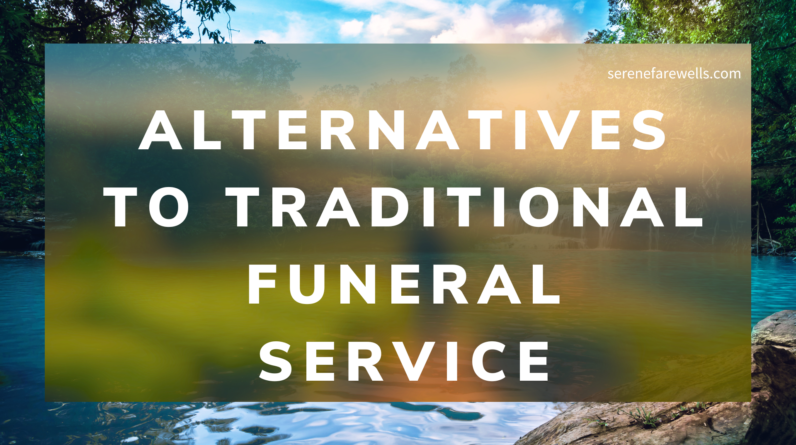
So, you’re curious about the cost comparison between cremation and a traditional burial, huh? Well, you’ve come to the right place! In this article, we’ll explore the question that’s on your mind: Is cremation cheaper than a traditional burial? Whether you’re planning ahead for yourself or making arrangements for a loved one, we’ll break down the costs and factors involved in both options, so you can make an informed decision that fits your budget and preferences. Get ready to discover the financial aspects of these end-of-life choices in a friendly and informative manner. Let’s dive right in, shall we?
Factors Affecting the Cost of a Funeral
Planning a funeral can be an overwhelming and emotional process, and one important aspect to consider is the cost. Understanding the factors that influence the cost of a funeral can help you make informed decisions and ensure that you stay within your budget.
Funeral Service Fees
The funeral service fees include the professional services provided by the funeral home, such as coordinating the funeral arrangements, obtaining necessary permits and certificates, and preparing obituary notices. These fees also cover the use of the funeral home facilities for the visitation and funeral service.
Choice of Casket or Urn
The choice of a casket or urn is a significant factor in the cost of a funeral. Caskets can range from simple to elaborate, and the prices can vary accordingly. Similarly, the cost of an urn can vary depending on the materials used and the design.
Embalming and Body Preparation
Embalming is a process that preserves the body temporarily and is often required for public viewings. The cost of embalming and other body preparation services, such as washing and grooming, can add to the overall funeral expenses.
Visitation and Viewing
Visitation and viewing allow family and friends to pay their respects and offer condolences. The cost of visitation and viewing depends on the duration and the type of service chosen, such as an open or closed casket viewing.
Transportation
Transportation costs may include the transfer of the deceased from the place of death to the funeral home, as well as the transportation to the cemetery or crematory. These costs can vary based on the distance and mode of transportation.
Burial Plot or Cremation Services
The cost of a burial plot or cremation services can be a significant expense in a funeral arrangement. Burial plot prices vary depending on the location, cemetery, and the specific type of plot chosen. Similarly, cremation services can have different costs associated with them, including the use of a crematory and the necessary permits.
Grave Markers or Monuments
Grave markers or monuments are permanent memorials that identify the burial site. The cost of these markers can vary greatly, depending on the type and design chosen. It’s important to consider these costs when planning a traditional burial.
Funeral Home and Staff
The choice of funeral home and the associated staff plays a role in determining the overall cost of a funeral. Different funeral homes may have different fee structures, so it’s advisable to compare prices and services offered.
Additional Services
Additional services, such as floral arrangements, catering for post-funeral gatherings, and the printing of memorial materials, can add to the total cost of a funeral. It’s important to discuss these services with the funeral home and determine if they align with your preferences and budget.
Location
The cost of a funeral can also vary depending on the location. Funeral expenses tend to be higher in urban areas compared to rural areas. Additionally, the cost of burial plots, cremation services, and other related services can vary by state and even by country.
Comparing Costs: Cremation vs Traditional Burial
When considering the cost of a funeral, it’s important to compare the costs of cremation and traditional burial. Both options have their own associated expenses, and understanding these costs can help you make an informed decision.
Cremation Costs
Cremation costs can generally be lower than traditional burial costs. A basic cremation package typically includes the cremation process, transportation of the deceased to the crematory, and the return of the cremated remains to the family. The cost of a cremation urn and any additional services, such as a memorial service, can add to the overall expense.
Traditional Burial Costs
Traditional burial costs can vary greatly depending on the choices made. Funeral home service fees, embalming, the cost of a casket, cemetery plot, grave opening and closing, headstone or grave marker, funeral procession, and additional services all contribute to the total cost of a traditional burial.
Regional Cost Variations
It’s important to note that the cost of both cremation and traditional burial can vary depending on the region. Urban areas generally have higher funeral expenses compared to rural areas. Additionally, the costs associated with burial plots, cremation services, and other funeral-related services can vary by state and country.
Average Cost Comparison
When comparing the average costs of cremation and traditional burial, it’s essential to consider both the national and regional averages. National averages provide a broad perspective, while regional averages account for specific cost variations in different areas. Comparing these averages can help you assess the potential cost savings associated with cremation.
Cremation Costs
Understanding the specific costs associated with cremation is crucial when considering this option for final arrangements.
Basic Cremation Package
A basic cremation package typically includes the essential services required for cremation, such as obtaining the necessary permits and certificates, transportation to the crematory, and the cremation process itself. The cost of a basic cremation package varies by funeral home and location.
Crematory Fees
Crematory fees are the charges associated with the use of the crematory facility. These fees cover the operational costs of the crematory and can vary depending on the location and the services provided.
Cremation Urn
Choosing a cremation urn is a personal decision that can affect the cost of cremation. Urns come in various materials, designs, and sizes, and their prices can range significantly. It’s essential to consider your budget and personal preferences when selecting an urn.
Memorial Service
A memorial service is a gathering to celebrate and remember the life of the deceased. This service can be held before or after the cremation process. The cost of a memorial service can vary depending on the venue, catering, and other factors.
Additional Services
Additional services, such as the scattering of ashes, customized memorialization options, and the purchase of keepsakes or jewelry made from cremated remains, can contribute to the overall cost of cremation. It’s important to discuss these options with the funeral home to understand the associated expenses.
Traditional Burial Costs
Traditional burial costs involve various components that contribute to the overall expenses. Understanding these costs can help you make informed decisions.
Funeral Home Service Fees
Funeral home service fees cover the professional services provided by the funeral home, including coordinating the funeral arrangements, obtaining necessary permits and certificates, and supporting the family throughout the process. These fees can vary depending on the funeral home chosen and the specific services required.
Embalming and Body Preparation
Embalming and body preparation costs are associated with preparing the body for public viewing. Embalming is not always required, but when chosen, it can add to the total expenses. Other body preparation services, such as washing and grooming, may also be included in these costs.
Casket
The cost of a casket varies depending on a variety of factors, including the materials used, the design, and any additional features or customization options. Caskets can range from simple and affordable to elaborate and expensive.
Cemetery Plot
Purchasing a cemetery plot is an important expense in traditional burial. The cost of a cemetery plot can vary depending on the location and the specific cemetery chosen. Factors such as the plot’s size, proximity to amenities, and the cemetery’s reputation also influence the price.
Grave Opening and Closing
The cost of opening and closing the grave is an additional expense associated with traditional burial. This cost covers the labor and equipment required to excavate and fill the grave.
Headstone or Grave Marker
Headstones or grave markers are permanent memorials that identify the burial site. The cost of a headstone or grave marker varies depending on the materials used, the size, the design, and any additional customization requested.
Funeral Procession
A funeral procession involves transporting the deceased from the funeral home or place of worship to the cemetery. The cost of a funeral procession can vary based on factors such as the distance, the number of vehicles required, and any additional escort services.
Additional Services
Additional services, such as floral arrangements, catering for post-funeral gatherings, and the printing of memorial materials, are common expenses in traditional burials. It’s important to discuss these services with the funeral home and consider their impact on the overall cost.
Regional Cost Variations
The cost of funeral services can vary significantly depending on the region. It’s essential to understand these cost variations when making funeral arrangements.
Urban Areas
Funeral expenses tend to be higher in urban areas compared to rural areas. This is often due to the higher cost of living, higher demand for funeral services, and the availability of more elaborate options.
Rural Areas
Rural areas typically have lower funeral expenses compared to urban areas. The cost of funeral homes, burial plots, cremation services, and other related services may be more affordable in these areas.
Costs by State and Country
Funeral costs can also vary by state and country. Factors such as local regulations, market conditions, and cultural practices influence the cost of funeral services. It’s important to research the specific costs in your area to make informed decisions.
Average Cost Comparison
Understanding the average costs of cremation and traditional burial can provide an overview of the potential cost savings.
National Average Comparison
National average cost comparisons consider the average expenses across the entire country. These comparisons provide a broad perspective on the cost differences between cremation and traditional burial.
Regional Average Comparison
Regional average cost comparisons take into account the specific cost variations in different areas. By comparing the regional averages, you can assess the potential savings associated with cremation based on your location.
Cost Savings Analysis
Analyzing the cost savings between cremation and traditional burial is crucial. By comparing the specific costs associated with both options and considering the regional cost variations, you can determine which option aligns with your budget and preferences.
Emotional Considerations
Alongside the financial aspects, it’s crucial to consider the emotional factors that may influence your funeral decisions.
Grief and Mourning Process
The grief and mourning process can be complex and differ for each individual. Understanding your emotional needs and those of your family can help guide your decisions regarding funeral arrangements.
Family and Cultural Traditions
Family and cultural traditions often play a significant role in funeral decisions. Considering these traditions and honoring them can provide comfort and solace during a difficult time.
Spiritual and Religious Beliefs
Spiritual and religious beliefs may impact funeral decisions, including whether to choose cremation or traditional burial. It’s important to consider these beliefs and consult with religious leaders or advisors as needed.
Environmental Impact
The environmental impact of funeral practices is increasingly considered by individuals and families. Choosing eco-friendly options, such as green burials or environmentally friendly cremation practices, can reflect personal values and minimize the ecological footprint.
Personal Preferences
Your personal preferences should also be taken into account when planning a funeral.
Burial or Cremation Preference
Considering your own preference between burial and cremation is important. Reflecting on what aligns with your values, beliefs, and wishes can help guide your decision-making process.
Financial Constraints
Financial constraints are a reality for many individuals and families. Understanding your financial situation and setting a budget that aligns with your resources is crucial when making funeral arrangements.
End-of-Life Planning
Planning for the end-of-life can provide peace of mind and alleviate the burden on your loved ones. Engaging in end-of-life planning discussions and documenting your preferences can help ensure that your wishes are honored.
Factors Influencing Choice
Several factors can influence the choice between cremation and traditional burial.
Cultural and Religious Factors
Cultural and religious factors play a significant role in funeral decisions. Customs, traditions, and religious practices may favor one option over the other. It’s important to consider these factors and discuss them with family members and religious leaders, if applicable.
Environmental Considerations
Environmental considerations are increasingly shaping funeral decisions. Individuals are becoming more aware of the impact traditional burial practices have on the environment and are opting for more eco-friendly alternatives, such as cremation or green burials.
Availability of Aftercare Services
The availability of aftercare services, such as grief counseling or support groups, may influence the choice between cremation and burial. Considering the resources and support available can help ensure that the bereaved receive the necessary care and guidance.
Family Location and Traditions
Family location and traditions can influence funeral decisions. Proximity to cemetery plots, burial sites of loved ones, or cultural practices may play a role in the decision-making process.
Budget and Financial Considerations
Budget and financial considerations are significant factors in choosing between cremation and traditional burial. Assessing your financial resources, setting a budget, and comparing costs can help you make a decision that aligns with your financial constraints.
Conclusion
When it comes to planning a funeral, there are numerous factors to consider, including the cost, personal preferences, emotional considerations, and family traditions. By understanding the factors that affect the cost of a funeral, comparing the costs of cremation and traditional burial, and considering the various influencing factors, you can make informed decisions that reflect your values, beliefs, and budget.
Considerations for Decision Making
When making funeral arrangements, consider the various factors that influence both the cost and personal preferences. Take into account the funeral service fees, choice of casket or urn, embalming and body preparation, visitation and viewing, transportation, burial plot or cremation services, grave markers or monuments, funeral home and staff, additional services, and location.
Importance of Pre-Planning
Pre-planning your own funeral can alleviate the stress and burden on your loved ones during a difficult time. By outlining your funeral preferences, documenting important information, and exploring the available options, you can make the process more manageable for those left behind.
Final Thoughts
Planning a funeral is a deeply personal and emotional experience. It requires balancing financial considerations, personal preferences, and cultural or religious beliefs. By understanding the factors that affect the cost of a funeral, comparing cremation and traditional burial costs, and taking into account the emotional and personal considerations, you can create a meaningful and respectful farewell for your loved one or plan for your own end-of-life arrangements.







